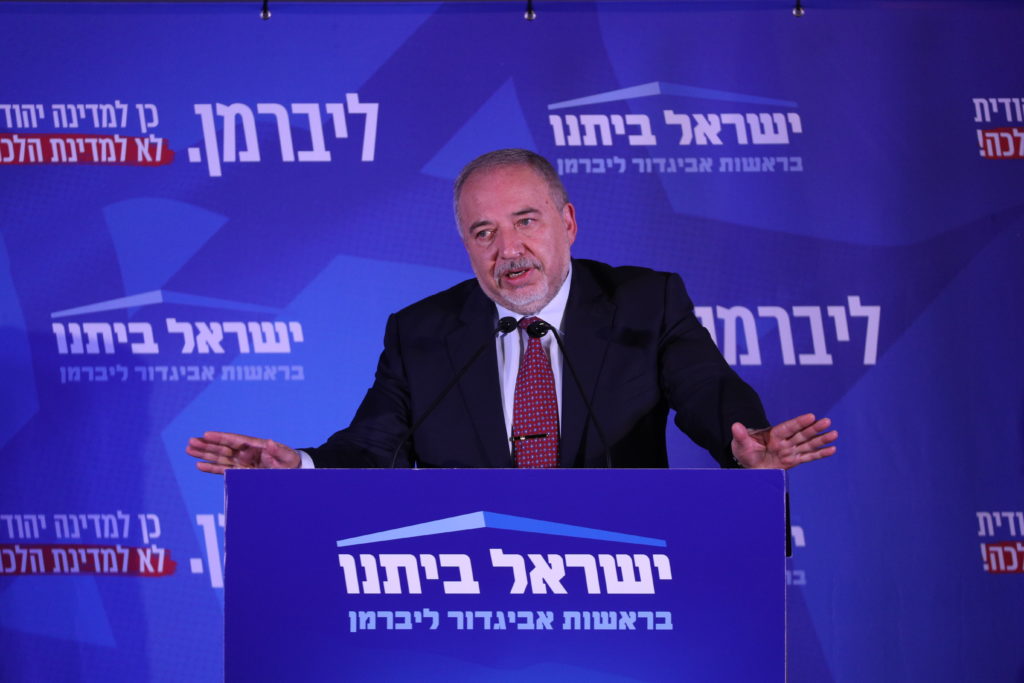Liberman says there is only “one option” for the country: a unity government that includes his camp and the two largest parties.
By World Israel News Staff and AP
Initial exit polls published after Israel’s vote on Tuesday showed the Blue and White Party neck and neck with Prime Minister Benjamin Netanyahu’s Likud. But neither appears able to form a majority coalition without the support of Avigdor Liberman, leader of the midsize Israel Beiteinu party.
In a speech to his supporters, Liberman said the only choice is for the two large parties to join him in a broad, secular coalition that would not be subject to the demands of haredi parties.
Israeli polls are often imprecise, but if final results are similar, Liberman’s call would set the stage for complicated negotiations.
Following Israel’s Tuesday elections, President Reuven Rivlin said he will press party leaders to quickly form a new government, despite initial exit polls showing no clear winner.
Rivlin’s office said Tuesday that his nomination of a candidate to form the next government would be guided in part by the need to avoid a third election, after two votes in five months. Rivlin said he would meet with party leaders “after he receives a clear picture of the results, and as soon as possible.”
Israel’s largely ceremonial president assigns the task of forming a new government to the party leader most likely to assemble a majority coalition.
Meanwhile, initial exit polls also indicated that an alliance of Arab parties could be the third largest bloc in Israel’s next parliament, with the faction’s leader calling it a “historic” moment for Arab-Israelis.
Ayman Odeh, the leader of the Arab Joint List, told Israeli media that if the final results match the exit polls, Arab voters will have “prevented Netanyahu from forming a government.”
In the closing days of his campaign, Netanyahu vowed to annex large parts of Judea and Samaria, which Israel took control of after defeating four Arab armies in 1967’s Six-Day War. The Palestinians, who in over 70 years have yet to create a viable independent state, demand that Israel cede large swaths of that territory.
No serious peace talks have taken place since 2009, with Palestinian rejectionism remaining the hallmark of Mahmoud Abbas’ regime.


